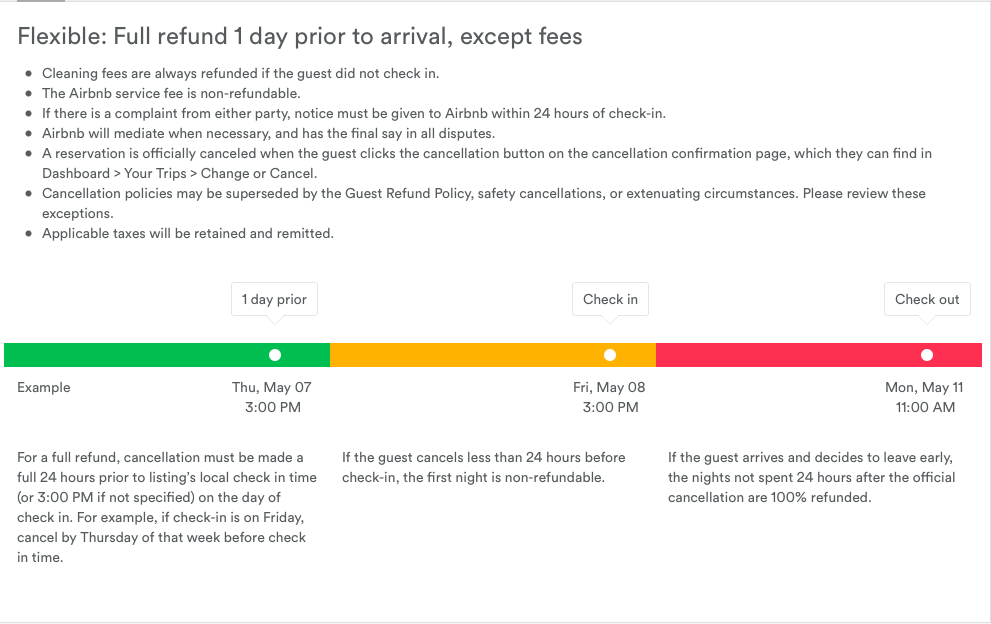Peak Season Secrets: 12 Ways to Optimize Your Short-term Rental Profitability in the Summer

After 2 years of uncertainty, travel is back. Vacation property owners are finally seeing increased bookings in 2022. And there’s no better time for you to make up for the past years’ losses than now. If you want to maximize your short-term rental profitability this summer, take a look at these helpful guidelines.
What is ‘peak season’ in tourism?
In the tourism and hospitality industries, ‘peak’ or ‘high’ season is when travel is most active and rates are highest. It’s a destination’s primary travel season. But each location will have a different amount of visitor traffic, which depends largely on that area’s tourism appeal. That appeal is influenced by factors like time of the year, attractions, amenities, popularity, and festivals or other special events. What may be a peak season for one place may be a shoulder or low (off-peak) time for another.
Also, the high season for the leisure market is exactly the off-peak season for the business market.
So expect a lot of bookings by families, couples and college kids. (Pets may be included, too.)
Which is good. Because more heads mean you can charge more. But it may also require you to beef up your amenities.
And remember that more guests may also increase the wear and tear on your property.
So how do you ensure that you get full bookings for the entire peak season? How do you handle the increased traffic and workload? And despite all the strain, how will you ensure a safe, smooth and hassle-free experience for your guests?
Maximizing Short-term Rental Profitability This Summer
The peak season is the best time to get the biggest part of your revenue for the entire year. So you’ll want to avoid problems as much as you can. That way, you can keep your operations running smoothly — and the profits coming — without a hitch.
The following are ways you can boost your short-term rental revenue at any time of the year — except for #9. But they’re all helpful particularly at peak season. It’s that time when the challenge isn’t so much to attract guests as it is to retain them. Because once you’ve drawn the amount of guests you need, you’ll want to ensure that they’re not only satisfied, but they also want to come back next year.
1. Offer early-bird discounts.
Several months before your peak season, consider offering discounts and announcing them in your listing. Travelers are booking much earlier now. In a 2021 study on travel planning, 59% of respondents who were making their 2022 plans said they intended to book trips two to five months in advance – compared to less than two months in advance for both 2020 and 2021.
Offering discounts will attract those early birds and help fill your calendar long before the summer sets in. That will give you enough time to prepare for the influx, purchase additional supplies or hire the extra help you might be need.
Don’t forget to set a limit on the time guests can avail of those discounts. In exchange for a cheaper rate, consider setting a stricter policy on cancellations so you don’t end up shortchanging yourself.

2. Ensure health protocols.
Continue your enhanced cleaning procedures, especially before and after each stay. Remember that many people are able to go on a major trip only now, long after the ebb and flow of Covid-19 and its variants. Safety is still a high priority for them.
Do everything you can to keep your place immaculately clean. And make sure potential guests know about this by stating your enhanced cleaning process in your listing description. That will assure the most sensitive travelers that health and safety are top priorities for you, and provide added peace of mind.
3. Be pet-friendly.
Pet-friendly amenities were one of the most searched-for amenities in 2021. Airbnb says searches that filtered for pet-friendly listings increased by 55% on their platform.
Vrbo’s Trend Report for 2022 shows that rentals with pet-friendly amenities have been rising, with an average annual increase of 40%. It said that 70% of the respondents they surveyed were parents, 68% of whom have traveled, were planning to travel, or wanted to travel with their pets.
4. Set a minimum stay.
If you’re expecting a time of particularly high demand, followed by a low one, consider requiring a minimum nights’ stay. Prioritize inquiries that ask for longer stays over the shorter ones. This will allow continuity, so that stays during the peak demand can extend or spill over to the off-peak days. It’ll help you secure occupancy for the lull that follows in the next weeks.
5. Encourage longer stays.
If your area isn’t a tourist destination in the summers, consider accommodating longer-term stays. They help you get higher occupancy with lower guest turnover — and a more predictable income.
Ever since the pandemic, corporate America has adapted to remote and hybrid working arrangements. Workers now value and prefer having a lot of flexibility. Because of remote work, Vrbo says guests are staying at vacation homes longer – with a 68% increase in 21-to-30-day stays. For Airbnb, 37% of folks surveyed said they planned to go on more long-stay travels for 2021 and beyond.
You can attract these types of guests by offering weekly or monthly-stay discounts, which Airbnb encourages on its platform. When you do, be sure to provide the features for longer-term stays: kitchen amenities, cleaning supplies, and more linen and towels.
6. Be flexible.
Aside from rental price and quality of amenities, a flexible cancellation policy tops the list of priorities that travelers are now looking for. According to a report, searches for flights within 7 days have increased 50%. Travelers have become increasingly more flexible and spontaneous in their travel plans. That’s partly due to the unpredictability of Covid-19 and how various local and national governments deal with tourism and border traffic.

7. Allow last-minute bookings.
If there are any remaining days on your calendar, those are the best slots to keep open for last-minute bookings. Airbnb reported a 58% rise in spur-of-the-moment reservations in 2021.
Try to attract those spontaneous travelers. But be sure to waive any minimum or maximum length of stay that you had preset, and compare your prices with your competitors. If it’s viable for you, offer them discounts. That can incentivize undecided guests to choose your property instead of others’.
8. Screen guests carefully.
If safety and manageability are top priorities for you, consider limiting your guests to only the ones you prefer. Would you want to cater only to adults? Out-of-towners (to avoid locals who are more likely to throw a party)? Small groups (who are less prone to making a lot of noise and disturbing neighbors)?
Carefully selecting guests and ruling out potential troublemakers will help keep problems at bay, and ensure smooth, hassle-free turnovers in between stays. You may also want to turn off the Instant Book feature on Airbnb so you can chat with and get to know potential guests first before confirming their booking.
9. Celebrate summer.
Now’s the time to do a seasonal makeover and put on the summer vibe. Add touches of color in key areas, such as fresh flowers or brightly colored decor and accents. Bring out the outdoor furniture. Set up a barbecue grill. Spruce up the garden or patio. And clean that pool!

10. Sell your location.
Check for special activities and events scheduled in your area. Concerts, trade fairs, festivals, and sporting events are always huge draws for tourists. Even if yours is a small town, there may be special activities that will be interesting to city folk: garden shows, yoga camps, craft workshops and petting zoos may happen here and there.
11. Update your listing.
Include all the changes you’ve made in your description. Update and improve whatever needs to be improved. In the gallery, add photos of outdoor attractions and activities that guests can enjoy in your property and neighborhood.
12. Thank your team.
Last but not the least, appreciate your workers. Your cleaners, in particular, do a lot of the heavy lifting in your rental business. And at no worse time do they do a lot of dirty work than at the peak season.
Show them your appreciation. You can do that by providing brown bag lunches on busy weekend turnovers, hosting barbecues for an ‘appreciation get-together’, or just rewarding them with cash gifts or bonuses.
That will make them feel they’re not just a part of your rental business, but an important element behind its success.
Vacation Rental Management Companies
Peak season can be the most trying time for a short-term rental business. Day-to-day operations can quickly become chaotic. That’s the reason many Airbnb owners get the help of property management companies.
If you’re anticipating a deluge of guests this summer, consider hiring a short-term rental management company. They can help you with scheduling cleanings as well as amenity replacements.
On the other hand, if you’re located at a winter destination and expecting a slump in bookings, it’s still a good reason to get a property manager’s help. They can help you better market your Airbnb, automate your operations, and run the business more efficiently so you can get better returns on your investment.
Cohostit does all that. It oversees everything from guest messaging to maintenance, and security checks to issue resolutions. Click here to book a call and see if you qualify.
